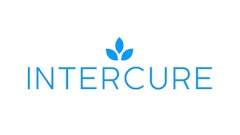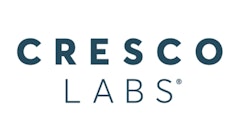
This week, Piper Jaffray, a Minneapolis-based investment bank and M&A adviser, threw itself into the cannabis space. It’s rare territory, still, for Wall Street stalwarts; Piper Jaffray’s entrance joins an array of clear signals around the marketplace in the past 12 months that cannabis, U.S. legal status notwithstanding, is gaining legitimacy in the eyes of investors.
That means more demand for cannabis analysis, which means more money moving into the market.
“We do believe the long-term growth opportunities are significant—both from transitioning illicit trade to legal sales, medical sales, and from transitioning sales in health & wellness categories to CBD-infused products,” analyst Michael Lavery told CNBC Jan. 8, when the firm began its coverage of legal cannabis producers. “While timing of further changes is difficult to predict, the pace of further legalization appears to be accelerating.”
Piper Jaffray first set “overweight” ratings for Canopy Growth Corp. and Tilray, two of the large-scale Canadian LPs. An overweight rating from a firm like Piper means that the stock is being sold on the market for a better value than others. (Underweight stocks are deemed susceptible to underperformance, and might indicate a need to sell.)
Since the news from Piper, Canopy shares spent two days, Jan. 8 and 9, rising in price on the New York Stock Exchange, from $28.45 to $33.60. Tilray shares clocked a net gain on the Nasdaq from $73.39 to $79.79.
In August, Canopy made international headlines by drawing a $3.8-billion (C$5-billion) investment from Constellation Brands, the maker of Corona beer. The news, which was followed in short order by a bevy of massive international investments between other consumer packaged goods companies and cannabis producers (including Altria’s $1.8-billion stake in Cronos Group), was another example of the marketplace taking matters into its own hands and preemptively lining up business opportunities ahead of U.S. legalization.
Lavery told CNBC this week that it’s this sense of normalization—as CPG corporations begin to make moves and as infused beverage technology begins to attract consumer interest—that has firms like his own confident enough to enter the space. “We expect legal recreational marijuana to source from illicit trade and could attract new users to the category, while THC-infused drinks could source share from alcoholic beverages,” he told the network. “Medical cannabis can replace a variety of products (e.g. pain relief, sleep aid, opioid replacement). CBD-infused products (with non-psychoactive properties) could gain share from food, beverage, and personal care categories.”
The analyst also called out Canopy’s recent acquisition of hemp research firm ebbu, which has brought a suite of R&D advancements to the Canadian company.
Squaring the matter and echoing sentiments made by Canopy Growth executives in recent months, Lavery told CNBC that “Canopy believes it can formulate both a THC-infused beverage that can substitute for alcoholic drinks and a CBD-infused sports recovery beverage that will ultimately compete with Gatorade,” Lavery said. “Canopy’s partnership with Constellation Brands gives it a competitive advantage in beverages, and it has already begun construction on a new bottling facility at its headquarters, which it designed with Constellation’s expertise.”
As capital markets adviser Dan Nicholls, of the MGO | ELLO Cannabis Alliance, told us in the inaugural edition of M&A Weekly, “I think [2019] will be probably a big year to see a lot of existing investment banks move into the space.”
Piper Jaffray may not be executing M&A transactions in the cannabis market right now, but the foray into stock coverage is significant.


























